The 2024 women's NCAA tournament bracket is here. The games are right around the corner. The anticipation and excitement around women's college basketball has never been higher.
Let the dancing begin.
ESPN is here to get you situated and prepared on all things March Madness as competition gets underway this week, starting with the First Four games Wednesday and Thursday. First-round action tips off Friday.
Whether you're late to the party and catching up on the tournament field or looking to learn more about your favorite team's first-round opponent and others in its path to Cleveland, look no further than our 68-team guide.
We break down what you need to know about each program, those appearing in play-in games, the first-timers, the sleepers, the perennial powers and everyone in between.

NO. 1 SEEDS
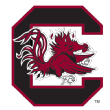
It has been South Carolina's season, and everyone else is just living in it. The Gamecocks lost five starters from last year's squad -- including No. 1 WNBA draft pick Aliyah Boston -- that went undefeated until the national semifinal, where they fell to Caitlin Clark and Iowa. Dawn Staley didn't need to rebuild, but rather revamped, retooled and reloaded. Guards Bree Hall and Raven Johnson, as well as forwards Ashlyn Watkins and Chloe Kitts, have shined in larger roles, as has senior center Kamilla Cardoso, a full-time starter and first-team All-SEC selection.
Senior guard Te-Hina Paopao was a perfect addition from the portal and freshman guard MiLaysia Fulwiley is a dynamic addition whose ceiling is even more exciting. The latter is playing her best basketball and last week became the first freshman since Candace Parker to take home the SEC tournament's most outstanding player award.
Altogether it means the Gamecocks (32-0) are just as good as they were last year -- once more going undefeated through the regular season and SEC tournament -- or perhaps even better. Their offense is more diversified and dynamic, and they're the third-best 3-point shooting team in the country (39.7%). And rest assured they still have their trademark depth that can wear out opponents over the course of a game.
Critical for a team that skews younger and relatively inexperienced, the Gamecocks are battled-tested, too. Six of their wins were decided by single digits, including nonconference dubs over Utah and North Carolina. This month was more of a nail-biter than usual for Gamecock fans, as each of South Carolina's past four games were decided by 11 points or fewer, and it needed the now-iconic Cardoso buzzer-beater 3-pointer to take down Tennessee in the SEC tournament semifinals. But no one said championship squads can't benefit from a little bit of luck.
On the line for the Gamecocks, who are now 103-3 over their past three seasons (!): the 10th undefeated season in NCAA Division I history, but perhaps more importantly to those in Columbia, a chance to win the program's third national title in seven tournaments and bolster their argument as the sport's latest dynasty.

Iowa (29-4) won its third consecutive Big Ten tournament title and will be a No. 1 seed in the NCAA tournament for the first time since 1992, when C. Vivian Stringer was the Hawkeyes' coach. Iowa made the Final Four as a No. 2 seed last season behind guard Caitlin Clark, who followed that with a record-setting senior campaign in which she became the top scorer in Division I men's and women's hoops.
Clark leads Division I in scoring (31.9 PPG), assists (8.9 APG) and 3-pointers per game (5.2). She is also Iowa's top rebounder at 7.3 per contest. Clark is the first Division I women's player to top 3,000 points and 1,000 assists, plus the first to score 1,000-plus points in multiple seasons.
Sophomore forward Hannah Stuelke (14.6 PPG) and senior guard Kate Martin (12.9) also average in double-figures. Clark and fifth-year seniors Martin and guard Gabbie Marshall have played together for four seasons. Junior guard Sydney Affolter moved into the starting lineup after Molly Davis' injury in the regular-season finale and played well in the Big Ten tournament.
Guard play is crucial in the NCAA tournament, and Iowa excels at that. Coach Lisa Bluder's squad leads Division I in points (92.8) and assists (21.9) per game and is fourth in assist-to-turnover ratio (1.59). -- Michael Voepel
Andraya Carter, Rebecca Lobo and Charlie Creme break down why Albany 2 Region will be so difficult.

JuJu Watkins admits she didn't think USC would be this good this quickly. And yet, the Trojans (26-5) are the best they've been in decades. After dethroning Stanford by capturing the Pac-12 tournament crown -- the program's second overall and first since 2014 -- it's clear this group legitimately has its sights set on Cleveland. Coach Lindsay Gottlieb has already been to a Final Four before, with Cal in 2013.
Watkins has been as good as advertised (and perhaps even better), establishing herself as the country's second-best scorer behind Iowa's Clark (27.0 PPG) and a tantalizing future WNBA prospect. She will be one of the biggest stars of March.
And while the freshman guard has proved she can single-handedly win games, the Trojans' overall growth in becoming a more well-rounded team is what will take them far. The Pac-12 championship game was a perfect example: Forward Rayah Marshall and Ivy League transfers McKenzie Forbes (guard), Kayla Padilla (guard) and Kaitlyn Davis (forward) made play after play on both ends to assert their will against the top-seeded Cardinal. "While we have selfless people who play roles," Gottlieb said afterward, "they are hoopers." The coach said her team is playing its best basketball at the right time, and it's hard to argue with her.
Of note: USC's run could have historic implications. The last time USC hosted NCAA tournament games, in 1994, was also the last time the Trojans advanced beyond the first weekend of the Big Dance.

Texas' lineup changed in late December when star guard Rori Harmon suffered a season-ending knee injury. Losing her after just 12 games was an emotionally tough obstacle, but it didn't derail the Longhorns (30-4) because they still possessed so much talent and grit. They finished second in the Big 12 regular-season standings and then won the conference tournament in their last year in the league before joining the SEC.
Freshman standout Madison Booker (16.9 PPG, 4.9 APG, 1.5 SPG) was the Big 12 co-player of the year and tournament MVP. She could make her presence known big time in the NCAA tournament. She has played a point forward role, with guards Shaylee Gonzales (52) and Shay Holle (33) the top 3-point shooting threats.
The Longhorns also have a powerful inside game, led by forwards Taylor Jones (12.4 PPG, 6.5 RPG), Aaliyah Moore (10.9, 5.8) and DeYona Gaston (8.3, 4.0). Texas led the Big 12 in scoring (81.2 PPG). And even if the defense isn't quite as good without Harmon, the total package still makes Texas a potential Final Four contender. -- Michael Voepel
Charlie Creme, Rebecca Lobo, Carolyn Peck and Andraya Carter break down Regional 4 in the women's NCAA tournament.
NO. 2 SEEDS

The bad news for Notre Dame fans this year: Junior guard Olivia Miles remained sidelined the entire season while recovering from a February 2023 knee injury. The good news? Freshman guard Hannah Hidalgo arrived and instantly became a top two-way player in the country. She ranks top-five nationally in scoring (23.3 PPG) and is No. 1 in steals (4.6 SPG), while also tallying 6.4 rebounds and 5.5 assists per game.
But the Irish (26-6) procured their first ACC tournament title under coach Niele Ivey not just because of the heroics of Hidalgo. Junior guard Sonia Citron and senior forward Maddy Westbeld found their groove -- those two plus Hidalgo scored or assisted on 53 of Notre Dame's 55 points in the ACC championship game -- and the team as a whole emerged as a defensive force, with Hidalgo naturally spearheading the charge.
Notre Dame is playing its best basketball right now, but the Irish's depth remains an issue as they might be down to a six-player rotation. Senior forward Kylee Watson's status moving forward is unknown after she suffered a knee injury in the ACC tournament.

The Buckeyes (25-5) won the Big Ten regular-season title, but enter the NCAA tournament having lost two in a row. They fell at Iowa in the regular-season finale -- a predictable loss -- but then were upset in the quarterfinals of the Big Ten tournament by Maryland. That was alarming, especially considering it was a 21-point loss and coach Kevin McGuff said his team didn't really show up.
The key for Ohio State is putting that performance in perspective compared to how the team played most of this season, which included a 15-game winning streak from Jan. 5 to Feb. 28. Ohio State and Michigan were tied atop the Big Ten in scoring defense (63.8 PPG), while the Buckeyes led the league in steals (10.6).
The backcourt of Jacy Sheldon and Celeste Taylor, both fifth-year seniors, is one of the best in the country from a defensive standpoint. Sheldon (18.0 PPG) and Taylor (10.2) also average in double figures, along with forward Cotie McMahon (14.1) and guard/forward Taylor Thierry (11.4). Ohio State upset UConn on the way to the Elite Eight last season and hopes to make the Final Four this year. -- Michael Voepel

In the last year of the Pac-12, it was fitting that Stanford (28-5) won the league's final regular-season title. The campaign started with questions, however, as there was uncertainty over how the Cardinal would rebound following the departure of Haley Jones to the WNBA as well as three transfers.
Tara VanDerveer, who in January became the sport's all-time winningest coach in men's and women's college basketball, put those doubts to rest early as her Cardinal crushed Indiana in their second game and also took down Duke and Florida State. Two of their five losses (at Gonzaga, vs. Arizona) came with All-American and Pac-12 Player of the Year Cameron Brink limited or sidelined. Two others were to USC, which defeated Stanford in the Pac-12 tournament title game.
Brink has taken the step forward required of her as a senior leader and is projected to be the No. 2 overall pick in the April 15 WNBA draft. But fellow post Kiki Iriafen's jump as a sophomore was a pleasant surprise in Palo Alto; her ceiling as a pro prospect has already caught the attention of WNBA talent evaluators. The two combine to average 36.4 points and 23.0 rebounds.
The X factor for this team is whether Brink and Iriafen receive help from guards Hannah Jump, Elena Bosgana, Brooke Demetre and Talana Lepolo.

The Bruins (25-6) have the players to make a deep March run, with a blend of young emerging stars and senior leaders, dynamic guards and dominant posts. Mainly, the arrival of center Lauren Betts from Stanford (14.7 PPG, 9.0 RPG, 2.0 BPG) has catapulted them into the Final Four conversation. After seeing a minor role as a freshman, she has flourished in Los Angeles, and coach Cori Close wants her to get the ball even more.
Fortunately for UCLA, Betts doesn't need to do it all alone. She's surrounded by a strong guard corps featuring fifth-year senior Charisma Osborne, as well as sophomores Kiki Rice and Londynn Jones. Collectively, the Bruins are the best rebounding team in the country (59.5% rebounding rate, according to Her Hoop Stats), while Betts anchors the paint defensively as well.
UCLA went undefeated in nonconference action, garnering wins over UConn, Florida State and Ohio State before taking some hits in conference play. The Bruins are 8-2 since Betts returned to the lineup following a four-game absence due to a medical issue, with their most recent loss coming in a double-overtime heartbreaker to eventual Pac-12 champion USC in the conference tournament semifinals.
UCLA fell to South Carolina last year in the Sweet 16, so a step forward for the Bruins would be to advance to their first Elite Eight since 2018 (third overall), or even to their first Final Four.
NO. 3 SEEDS

A year that started with so much promise devolved into a season marred by injuries once more. The 11-time national champions have five players out for the year, including sharpshooter Azzi Fudd and fifth-year senior Aubrey Griffin. The Huskies (29-5) took some bumps in nonconference play with five losses, all to quality teams, while also beating solid squads such as UNC, Louisville and Creighton (twice).
Amid the adversity, they comfortably finished perfect across Big East play, including with forward Aaliyah Edwards out for the majority of the conference tournament with a broken nose. The senior is expected to be available for the remainder of the postseason.
There have been plenty of positives. Guard Paige Bueckers (21.3 PPG), the 2021 national player of the year, returned from an ACL injury in top form, displaying her trademark efficiency (61.1% effective field goal percentage) and arguably becoming an even more well-rounded player who operates with intentionality on the defensive end (2.1 SPG, 1.4 BPG). Edwards (17.8 PPG, 9.3 RPG) is a surefire All-American and combines with Bueckers to create one of the most potent tandems in the tournament.
Freshmen guards KK Arnold and Ashlynn Shade have been thrust into larger roles than expected, but for the most part, they have answered the call. UConn's four rookies will likely need to play beyond their years for UConn to surpass last year's stunning Sweet 16 finish, which ended the Huskies' NCAA-record streak of playing in 14 consecutive Final Fours.
Andraya Carter breaks down how Regional 3 in the women's NCAA tournament is filled with "certified bucket" getters.

Well after the dust settled from last year's national championship, the Tigers (28-5) have been the talk of women's basketball -- first due to their high-profile transfers, Hailey Van Lith from Louisville and Aneesah Morrow from DePaul. And they've generated compelling storylines since the season tipped off. After being upset by Colorado in their opener, the Tigers have experienced injuries, departures from the team, unexplained absences, confidence-boosting nonconference wins, shocking SEC losses and everything in between.
Senior forward Angel Reese has been consistently dominant, taking home SEC Player of the Year. Morrow, a junior forward, acclimated well to SEC play. Guard Mikaylah Williams established herself as one of the best freshmen in the country, while sophomore guard Flau'jae Johnson made meaningful strides from last season. Van Lith has taken time to adjust to her new role, but the senior guard is moving in the right direction.
LSU played South Carolina close twice, including short-handed in the SEC championship game. The Tigers don't have a slew of marquee wins, but the eye test says they could be dangerous again in March Madness.
The status of junior guard Last-Tear Poa (concussion) is unclear, but it's a big loss for a Tigers team already lacking depth if she can't play. The health of Williams, who can provide perimeter shooting, will also be key. She saw limited action in the SEC tournament due to a foot injury.

NC State (27-6) was picked to finish eighth in the ACC preseason poll following a first-round 2023 NCAA tournament exit and losing four starters. But coach Wes Moore turned some heads this season after guiding the Wolfpack to become contenders in the ACC and nationally. NC State made a statement early with wins over UConn and Colorado, going undefeated in nonconference action before tying for second in the ACC at 13-5.
Junior guard Aziaha James is NC State's top scorer (15.8 PPG), but balance among the Wolfpack's mostly-six-player rotation sticks out. Junior guard Saniya Rivers brings versatility and dynamism, forward River Baldwin brings the steadiness of a graduate student down low and freshman guard Zoe Brooks has shown promising moments.
The Wolfpack's defense has been a strength this season, but to put together a deep run, they'll need to get their offense going again. NC State managed just 51 points against Notre Dame in the ACC title game, with only Baldwin (14 points) and James (12) hitting double figures. In five of their six losses, they failed to score more than 62 points and shot worse than 36% from the field.

A year ago, Scott Rueck's squad went 13-18 and only managed four wins in the Pac-12, ensuring Oregon State's second straight season without a NCAA tournament appearance. Eleven of the Beavers' losses were by single digits, seven by five points or fewer. But those "hellish" (in Rueck's words) moments last year helped Oregon State (24-7) learn how to pull out wins this year. The Beavers have done plenty of that: Despite being picked to finish 10th in the preseason conference poll, they secured a top-four finish in the Pac-12 and will host NCAA tournament games for the first time since 2019.
Oregon State's youth movement -- they have no seniors on the roster and lean heavily on freshmen and sophomores -- has things looking bright in Corvallis beyond this postseason. Sophomore Raegan Beers has established herself as one of the best bigs in the nation -- her 66.0% clip from the field is third best in the country. Timea Gardiner, a 6-foot-3 sophomore forward, is shooting 40.5% from 3-point land, junior guard Talia von Oelhoffen is as gritty as they come and guard Donovyn Hunter is one of the more unheralded freshman studs in this class.
NO. 4 SEEDS

Their WCC title game upset notwithstanding, Gonzaga (30-3) has had a stellar season, already reaching the 30-win mark (the most under Lisa Fortier) thanks to a program-record 24-game win streak, while suffering just two losses prior to March (to Washington State and Louisville). The Zags went 4-1 against Pac-12 competition, securing a signature win when they beat Stanford by 18, which helped them stay in the AP rankings most of the season.
Not only does Gonzaga have one of the best bigs in the nation in WCC player of the year Yvonne Ejim (19.8 PPG/8.5 RPG/1.5 SPG), they surround her with three shooters (Brynna Maxwell, Kaylynne Truong and Kayleigh Truong) who are connecting on at least 40% of their attempts from 3-point land. Collectively, the Bulldogs are the second-best 3-point shooting team in the nation (40.03%).
The program last advanced beyond the first weekend of the tournament in 2015, Fortier's first year at the helm. That's a reasonable goal for this year's squad, which has the experience to make a run with its entirely senior starting lineup (featuring three fifth-year players).

The Hoosiers (23-4) played likely their best game of the season Feb. 22 when they defeated Iowa 86-69 and held the Hawkeyes to 17.9% shooting from 3-point range. That game showed how effective Indiana's defense could be, even against the best offense in the country.
Unfortunately for the Hoosiers, star fifth-year forward Mackenzie Holmes suffered a knee injury in the regular-season finale and was limited to just five minutes in Indiana's Big Ten tournament quarterfinal loss to Michigan. That defeat was tough especially because the Hoosiers led by 14 at halftime and then lost by 13. The positive note after that game, though, was coach Teri Moren saying she believed the Hoosiers would be a significantly healthier squad for the NCAA tournament, including Holmes, who leads the team at 20.0 PPG and 6.9 RPG.
Indiana was upset last season as a No. 1 seed in the second round by Miami after Holmes had missed the first round recovering from injury. If she's close to being healthy this year, the Hoosiers -- who also have four other players averaging in double figures scoring, including guard Sara Scalia (16.2 PPG), are a solid pick to advance to the Sweet 16. -- Michael Voepel

The Wildcats (25-7) were third in the Big 12 and lost to Texas in a competitive tournament semifinal. They had nonconference wins over Iowa and North Carolina and started league play 9-0, getting up to No. 2 briefly in the Associated Press Top 25 poll. Back-to-back losses at Oklahoma and Texas brought Kansas State back down to earth a bit, as the loss of star center Ayoka Lee for six games with an ankle injury was a challenge.
With Lee back, the Wildcats finished 4-4, but those losses were by an average of 4.8 points, showing how good K-State can be. The Wildcats were the top scoring defensive team in the Big 12, holding foes to 57.6 PPG. Lee (20.1 PPG, 8.4 RPG, 2.7 BPG) powers K-State, which didn't make the NCAA tournament last year with her out with a knee injury. Serena Sundell (12.0 PPG, 5.4 APG) leads the guard play. -- Michael Voepel

It feels like the Hokies (24-7) have lived many lives within this season alone. Fresh off the program's first Final Four appearance, Virginia Tech returned its foundational duo of fifth-year senior Elizabeth Kitley and junior Georgia Amoore but had a mostly new cast of role players around them. It took time for the group to figure out its identity, but after nonconference losses to Iowa and LSU and back-to-back ACC defeats, the Hokies rattled off 10 consecutive wins to clinch their first ACC regular-season championship. Amoore and Kitley looked unstoppable, averaging 44.7 points combined across conference play (with Amoore adding 6.5 dimes and Kitley 11.2 boards per game).
But disaster looked to have struck in their regular-season finale when Kitley, now a three-time ACC Player of the Year, suffered a knee injury. Her status for the NCAA tournament remains unknown. But the Hokies enter the Big Dance having lost three of their past four (Kitley played in 1½ of those contests).
There's no way to replace the presence of a player of Kitley's caliber, though a star like Amoore helps soften the blow. To be able to win in the tournament, Tech needs others to help out its Aussie point guard. Quality minutes from bigs Clara Strack and Rose Micheaux, consistency from Cayla King and a productive run from 3-point threat Matilda Ekh will be necessary.
NO. 5 SEEDS

Baylor (24-7) started the season 14-0 with victories over four ranked teams, including Texas. But the Bears then had a stretch where they were 4-6, and it was hard to tell if they were going to be able to turn things back around.
They did, winning six of their last seven to send them into the NCAA tournament in a better frame of mind. Forward Dre'Una Edwards (12.0 PPG) and guards Sarah Andrews (11.1) and Darianna Littlepage-Buggs (10.5) lead the way for Baylor's offense. Baylor was fourth in the Big 12 in 3-pointers per game (7.6) but first in opponents' field goal percentage (26.1). Baylor is good enough to compete with almost any team, and the Bears' defense usually has been reliable. The key to advancing in the tournament will be offensive production. -- Michael Voepel

Coach JR Payne prides her program as one comprising blue-collar competitors used to being overlooked. Still, there was no more stunning result the first week of the season than when her under-the-radar Buffaloes (22-9) comfortably toppled defending champion and plenty-hyped LSU.
What they lack in big-name players they make up for in grit and experience. Colorado's youngest starter, forward Aaronette Vonleh, is a junior, and the Buffs' core features three fifth-year seniors. The team is known for being defensive-minded, but Colorado's offense -- run by speedy graduate student point guard Jaylyn Sherrod -- is statistically the best it's been under Payne. Colorado can score in a multitude of ways, with its combo of outside shooters, downhill players and interior powers.
After a strong start to Pac-12 play, the Buffs lost six of their last eight contests, most recently dropping a double-overtime result to Oregon State in the Pac-12 tournament quarterfinals. Still, Payne said after the loss she thought her team was playing better basketball in Las Vegas that the Buffs can build off of for the NCAA tournament.

The Sooners (22-9) were Big 12 regular-season champions in their final year in the league before going to the SEC. They did it with one of the best turnarounds between nonconference and conference play of any team in the country. Oklahoma had to remake itself after losing four of five starters to graduation/injury from last year's co-Big 12 regular-season championship team. The Sooners hit some bumps in the road in nonconference play, where they went 6-5 -- but four of those losses were to teams in the NCAA tournament.
Once league play started, the Sooners found their footing behind co-Big 12 player of the year Skylar Vann (14.7 PPG, 7.1 RPG) and league newcomer of the year Payton Verhulst (12.9 PPG, 5.9 RPG, 4.0 APG). The Sooners' 76.8 PPG average was less offense than what we're accustomed to seeing from them, but they've made up for it with improved defense. Texas only lost four games this season, and two of them were to Oklahoma. -- Michael Voepel

Preseason expectations for Utah (22-10) were high. Returning all five starters from last year's squad that won a share of the Pac-12 regular season title -- and which was free throws away from sending LSU home in the Sweet 16 -- the Utes were picked to finish first in the league in the preseason poll.
Things haven't gone to plan for coach Lynne Roberts' squad, as last year's second-leading scorer Gianna Kneepkens (foot) was lost for the season during nonconference play, while Isabel Palmer has only appeared in 12 contests. The Utes went 11-7 in a cutthroat Pac-12 -- notably, they were the most recent team to beat USC -- before falling to UCLA in the tournament quarterfinals.
But they still have one of the top offensive players in the country in 2023 Pac-12 player of the year Alissa Pili, a senior forward who earlier this season dropped 37 points against South Carolina and is averaging 20.8 per game on 54.8% shooting (39.4% from 3). Their offensive system -- predicated on movement, spreading the floor and prioritizing 3s and shots at the rim -- can be hard for teams to guard if they aren't familiar with it.
NO. 6 SEEDS

Under coach Jeff Walz, Louisville (24-9) has been the bedrock of consistency. Since joining the ACC, the Cardinals boast a conference-best 82.1% win percentage in league play, advanced to the quarterfinals at a minimum in each ACC tournament and have compiled 14 consecutive 20-win seasons, the fifth-longest active streak in the country.
That consistency extended to 2023-24, even as Walz assembled a new-look team after transfer departures and arrivals in the offseason. Second-team all-ACC post Olivia Cochran brings experience as a four-year player for Walz, as she's flanked in the starting five by three transfers (and another off the bench). The Cardinals don't have a singular offensive centerpiece but are balanced with five players who've scored 1,000 points in their career (including fellow all-conference second-team guard Kiki Jefferson with over 2,000).
Walz has led his teams to six consecutive Sweet 16s -- including last year when the Cardinals also had to hit the road for early-round NCAA tournament games and upset Texas. The Cardinals will need to clean up their turnover issue, something that plagued them in the ACC tournament, to extend the streak.

The Cornhuskers (22-11) almost got their second victory this season over Iowa in the Big Ten tournament championship game. But the Hawkeyes forced overtime and won the title. The Huskers were crushed afterward, having been so close. But with some time to consider how well they played at the league tournament, the Huskers should take a lot of confidence into the NCAA tournament.
Nebraska had some losses this season it shouldn't have had, such as to Minnesota, Illinois and Rutgers. But when the Huskers are at their best -- like their Feb. 11 victory over Iowa and their run to the Big Ten final -- they combine good 3-point shooting, led by guard Jaz Shelley (13.7 PPG), and a strong inside game, led by center Alexis Markowski (15.9 PPG, 10.8 RPG). Freshman forward Natalie Potts (10.6 PPG, 5.6 PPG, 50.9 FG%) is also a player to watch. -- Michael Voepel

Syracuse's quarterfinal exit after falling to Florida State as the No. 3 seed in the ACC tournament might have been disappointing, but the Orange's overall season has been one to remember. In her second year at her alma mater, Felisha Legette-Jack -- recently named ACC coach of the year -- didn't just guide the Orange back to the NCAA tournament for the first time since 2021, she positioned them within reach of hosting games. Within their 23-7 campaign, they tied program records for regular-season victories (23), conference wins (13) and ACC road wins (six) -- all after being projected to finish ninth in the league.
Fifth-year senior Dyaisha Fair, who followed Legette-Jack from Buffalo, has proved she's a star in the Power 5, too. A top-three leading scorer in the ACC at 22.0 points per game, Fair is fifth all time on the NCAA Division I scoring list with 3,351 points and is known for her ability to get hot in the fourth quarter. Alyssa Latham -- who leads the team in rebounds (7.1 per game) and has helped establish the Orange as a top offensive rebounding team in the country (40.5% offensive rebounding rate) -- earned a spot on the all-freshman team.

Tennessee (19-12) rode out a roller-coaster season to enter March Madness as a team few will want to see in their side of the bracket. The Lady Vols' 4-5 start raised some eyebrows (granted, soon-to-be WNBA lottery pick Rickea Jackson missed most of those games with an injury), and entering SEC action they were out of the NCAA tournament picture entirely. But with Jackson back into the fold, they steadily climbed across conference play, and recent results against the league's top two teams demonstrate what their ceiling could be.
In the regular season, Tennessee played LSU and South Carolina tight. In a SEC tournament semifinal rematch, the Lady Vols overcame a 23-point deficit and were a buzzer-beater away from taking down the undefeated Gamecocks. As heartbreaking of a finish it was, the team can use it as a launch point for a successful March run.
For as special as Jackson is, she can't do it alone. Guards Jewel Spear, Sara Puckett and Jasmine Powell will need to hit shots. The Lady Vols will need to assert themselves on the glass and can't revert to bad habits on the defensive end. Center Tamari Key, who as of February is back in the starting lineup after being sidelined last season with blood clots, can play a massive role there.
Coach Kellie Harper has led Tennessee to two straight Sweet 16s, but Tennessee hosted early-round games in both of those tournaments. This year, it is headed on the road for the first time since 2019, when it fell in the first round to 11-seed UCLA.
NO. 7 SEEDS
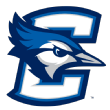
The Bluejays (25-5) were the clear second-best team in the Big East this season behind UConn, occupying a spot in the AP rankings most of the year. Despite an upset loss to Georgetown in the Big East tournament semifinals, the Bluejays won 25 games, tied for the program's most in a season under coach Jim Flanery. Creighton, which lost just one nonconference game, led the Big East with three all-conference first team selections: forward Emma Ronsiek, guard Lauren Jensen and guard/forward Morgan Maly, who combine for 48.8 points per game.
The trio, along with three other teammates, were on the roster when Creighton made its Cinderella run to the Elite Eight two seasons ago as a 10-seed, showing off how difficult the Bluejays' motion offense is to defend. (Note: All six are seniors and can return for a fifth-year next season, too.) The group hopes to conjure some more magic this postseason to be the latest (non-UConn) Big East squad to make some noise in March.

Last season, Duke was stunned at home as a No. 3 seed by Colorado in the second round of the NCAA tournament. The Blue Devils have a lower seed this year after returning just 28.3% of their scoring from last season. Coach Kara Lawson guides a group with eight underclassmen, including five freshmen.
But the Blue Devils (20-11) still aren't an easy matchup to have on your side of the bracket, especially after a confidence-boosting final month of ACC action featuring some big wins (over Syracuse, NC State) and close games against upper-tier competition (single-digit losses to Virginia Tech, Notre Dame). And out of conference, they played teams like Stanford and South Carolina tight earlier this season.
Their defense can give opponents fits, with only six teams scoring 70 points against Duke this season. While the Blue Devils' offense can lag at times, players such as Ashlon Jackson, Taina Mair and Reigan Richardson have shown they can go off. Another star freshman, Oluchi Okananwa, has been a force for the Blue Devils off the bench, leading them in rebounding (despite being just 5-foot-10) and coming in third in scoring.
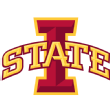
The Cyclones (20-11) went through growing pains because they -- like fellow Big 12 school Oklahoma -- lost so much from the previous season. That includes the program's all-time leading scorer and rebounder, Ashley Joens, who led Iowa State to the 2023 Big 12 tournament title. Freshmen Audi Crooks (18.9 PPG, 7.7 RPG) and Addy Brown (13.1 PPG, 8.3 RPG, 4.9 APG) have powered the new-look Cyclones.
Senior point guard Emily Ryan missed the early part of the season with injury but returned Dec. 17. She is averaging a team-best 6.7 assist, plus 10.2 points, and provides the leadership the young team needs. Iowa State won seven of its last nine games -- the two losses were to Texas -- and reached the Big 12 tournament final. -- Michael Voepel

Ole Miss' Sweet 16 appearance, via an upset of top-seeded Stanford in the second round, was one of the stories of the 2023 NCAA tournament. Behind their trademark defense and rebounding prowess, the Rebels (23-8) are looking to build upon that run in what's been a largely successful season for coach Yolett McPhee-McCuin.
For the third consecutive year, the Rebels reached the 20-win threshold. A third-place finish in the SEC was their best in conference play since 1991-92, and 12 SEC victories were a program record -- all despite being without impact transfer KK Deans after she suffered a season-ending knee injury six games in.
Seniors Marquesha Davis and Madison Scott earned first-team all-SEC nods for the first time in their careers (tying LSU for the program with the most representatives), while transfer Kennedy Todd-Williams is coming into her own. Ole Miss won seven consecutive games before losing to LSU in the SEC tournament semifinals, and gave the Tigers a tough time both times they met.
NO. 8 SEEDS

With so much attention on South Carolina and LSU in the SEC, and deservedly so, Alabama quietly put together a strong season to secure its third NCAA tournament appearance in the last four years, and their only ones this century. Prior to conference play, the Crimson Tide (23-9) beat Louisville and dropped close games to Gonzaga and Syracuse in quality losses. Their 23 regular-season wins are the program's most since 1991-92, and they collected 10 SEC victories for just the third time in program history. Despite being picked to finish ninth in the league, Alabama clinched the No. 4 seed in the SEC tournament, where it fell in the quarterfinals to Tennessee.
Senior guard Sarah Ashlee Barker was tabbed for the all-SEC first team after averaging 17.2 points per game, the fifth-best mark in the SEC. Senior guard/forward Aaliyah Nye, a second-team selection, made 104 3s, third best in the nation behind Iowa's Clark and Syracuse's Fair.
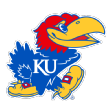
The Jayhawks won the WNIT championship last season but didn't want to return to that tournament in 2024. However, they were 10-10 after a loss at Oklahoma on Jan. 27 and knew their NCAA tournament hopes were fading. They had to turn things around dramatically. Kansas (19-12) finished the season going 9-2, with the only losses coming at Baylor and to Texas in the Big 12 tournament.
The closing stretch put the Jayhawks back on track for an NCAA bid, a good way to send out their fifth-year senior standouts: center Taiyanna Jackson (12.6 PPG, 9.8 RPG) and guards Holly Kersgieter and Zakiyah Franklin, who both average 11.7 PPG. And it's a good start to the career of freshman guard S'Mya Nichols, who led Kansas in scoring (15.2 PPG), assists (2.7) and steals (1.4). -- Michael Voepel

The Tar Heels (19-12) have been up and down this season. They have two separate stretches of three- or four-game losing streaks. But nine of their 12 losses have been by single digits, including a seven-point defeat to South Carolina and most recently by one to Miami in a second-round ACC tournament exit. They've beaten most of the top teams in the conference, but then lost to Boston College at the end of February.
Injuries have depleted their backcourt rotation, but the Tar Heels still have exciting pieces entering March, starting with senior all-ACC picks Deja Kelly (first team) and Alyssa Ustby (second team). If the Tar Heels can get their offense rolling, a second weekend appearance seems within reach. North Carolina will need productive runs from its transfer trio of guards Lexi Donarski and Indya Nivar as well as post Maria Gakdeng.
It's no surprise the Tar Heels' most recent marquee win over NC State featured five players in double figures (which didn't even include Kelly), while Donarski led the way with five 3-pointers.

The Mountaineers (24-7) got off to a 13-0 start under new coach Mark Kellogg and were 22-3 after a big win over visiting Oklahoma on Feb. 17. But West Virginia didn't finish as well as it hoped, losing four of its last six.
Still, the Mountaineers were second in the Big 12 in scoring defense (57.8 PPG) and led the league in steals (14.9 per game). And they have one of the league's best guard tandems in JJ Quinerly (19.6 PPG) and Jordan Harrison (13.8 PPG, 5.2 APG). West Virginia can be a tough foe for teams not used to how much defensive pressure the Mountaineers can bring. -- Michael Voepel
NO. 9 SEEDS

Florida State (23-10) was without star Ta'Niya Latson due to injury during last year's NCAA tournament, which ended with a first-round loss to Georgia. We'll finally get our first dose of March Madness Latson this year, and it could be a treat. The sophomore guard is up to 14 career 30-point games (including seven this season), her 21.3 points per contest spearheading a FSU squad known for its fast-paced, high-scoring offense.
Latson isn't only the first-team all-conference selection on the roster. Junior forward Makayla Timpson (14.1 PPG/10.0 RPG) has been a double-double machine with 17 on the season, and she led the ACC in blocks this season (84).
Florida State -- part of an exclusive club of eight programs that have made each of the past 11 tournaments -- will look to get its first NCAA tournament win since 2019, when Sue Semrau was still at the helm. The Seminoles have some momentum after winning nine of their last 12, which includes a double-overtime loss to Notre Dame in mid-February and an upset win over Syracuse in the ACC tournament quarterfinal.
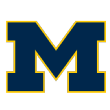
Defense was the Wolverines' primary calling card this season; they tied with Ohio State atop the Big Ten in opponents' points per game (63.8). That's not bad considering they play in a league with several high-scoring teams. The Wolverines (20-13) were one of three Big Ten teams to finish 9-9 in the league, and their best win was against Indiana in the Big Ten tournament quarterfinals. Guards Laila Phelia (16.8 PPG) and Lauren Hansen (11.9 PPG) are Michigan's top scoring threats. -- Michael Voepel

The Spartans (22-8) finished fourth in the Big Ten, although Nebraska upset them in the quarterfinals of the league tournament. The Spartans' only "bad" loss of the season was at Minnesota on Jan. 20. Their road losses to the Big Ten's big three -- Ohio State, Iowa and Indiana -- were all by five points or less.
Because there was so much attention on the Big Ten's top teams, there wasn't as much of a spotlight on the Spartans. But they aren't going to be a pushover in the NCAA tournament. The guard-led Spartans were second to Iowa in the Big Ten in assists (18.97). They led the league -- and rank second in D-I -- in assists-to-turnover ratio (1.62). Senior guard Julia Ayrault leads four Spartans who average in double figures (15.4 PPG), and she's also the team's top rebounder (7.2 RPG). -- Michael Voepel

The Tigers (25-4) have earned the Ivy League's last five NCAA tournament bids and are going dancing for the 11th time overall. And they punched their ticket in convincing fashion, taking down co-regular season champion Columbia 75-58 in Saturday's final.
It's not just that Princeton gets to the NCAA tournament. The Tigers win games there, too. In both berths under coach Carla Berube, the defensive-minded Tigers advanced to the round of 32, and both times played close second-round contests despite ultimately losing.
They wouldn't have needed the auto bid to make it to the NCAA tournament, either, as they put together a strong nonconference slate in which they beat Oklahoma and Middle Tennessee, fell to UCLA by one possession and by only nine to Indiana.
Any Princeton run would require a standout tournament from 2023 Ivy League player of the year Kaitlyn Chen, the league's first athlete in nearly 20 years to average 15 points and 5 assists in a season. Chen is flanked by fellow all-Ivy selections Madison St. Rose, a guard and one of the league's most improved players, and Ellie Mitchell, a forward who is a three-time Ivy League defensive player of the year and one of the best rebounders in the country (10.0 RPG).
NO. 10 SEEDS

The Golden Eagles (23-8) are back in the NCAA tournament for the third time (second consecutive) under Megan Duffy, who is hoping to secure her first win in the Big Dance. The season started on a great note, as Marquette compiled its best start in program history at 12-0 and went undefeated in nonconference play. But it has since dropped eight Big East games, including the tournament semifinal to UConn (where it managed just 29 points).
Forward Liza Karlen took a big step as a senior on her way to being tabbed an unanimous first-team all-conference selection. Sophomore guard Mackenzie Hare, one of the top 3-point shooters in the nation at 43.2%, and senior guard Jordan King round out the Golden Eagles' big three, but defense will power them if they start rolling in March.

The Terps (19-13) struggled mightily with health this season; guards Lavender Briggs and Riley Nelson and forward Emma Chardon are all out with knee injuries. The result has been a different Terps team than we're used to seeing. They went 9-9 in Big Ten play and had to lean heavily on guard play. Junior Shyanne Sellers leads Maryland in scoring (15.5 PPG), assists (5.5 APG) and minutes played (32.5).
Despite the reliance on perimeter players, the Terps were still third (39.1) in the Big Ten in rebounding, led by transfer Jakia Brown-Turner (6.5 RPG.) She is spending her fifth season at Maryland after four at NC State and brings a lot of NCAA tournament experience. The Terps knocked off top-seeded Ohio State in the Big Ten quarterfinals, showing they can't be overlooked. -- Michael Voepel

The Atlantic 10 Conference has produced seven different tournament champions in the past seven years. This season, the Spiders earned the distinction, winning their first A-10 regular-season title and following it up by clinching their first conference tournament championship since 1991. It marks the Spiders' fourth appearance in the Big Dance, and first since 2005, although they got some postseason experience in the WNIT last year.
Under fifth-year coach Aaron Roussell, the Spiders' 29-5 record comfortably features their highest win total in program history. They boast one of the most efficient and best 3-point shooting offenses in the country, notching 1.18 points per scoring attempt and shooting 37.7% from behind the arc. Sophomore forward Maggie Doogan (15.4 PPG), an All-A-10 first-team pick, leads Richmond in scoring, while A-10 defensive player of the year and tournament MVP Addie Budnik, a senior forward, is one of the nation's top shot blockers with 2.5 per game.

Lindy La Rocque has built a mid-major power in the desert. For the second straight season, the Lady Rebels won 30 games, joining South Carolina as the only Division I programs to achieve it. And for the third consecutive season, UNLV completed the regular season and Mountain West tournament sweep.
Senior post Desi-Rae Young (18.6 PPG, 9.0 RPG), who won the MWC player of the year award in two of the past three seasons, is the centerpiece. The emergence of junior point guard Kiara Jackson (11.3 PPG, 4.6 APG) and MWC freshman of the year Amarachi Kimpson (10.6 PPG, 54.5 FG%) helped La Rocque replace some key players from a year ago and keep UNLV the dominant force in the conference. -- Charlie Creme
NO. 11 SEEDS

The Wildcats (17-15) have had a roller-coaster season, but earning an NCAA tournament berth (for the fourth consecutive year) has to feel rewarding for Adia Barnes and crew. The Wildcats are down to seven scholarship players after three season-ending injuries and two midseason departures, with top scorer Kailyn Gilbert being dismissed from the team last month. Things looked particularly dire when they went 1-5 to start the 2024 calendar year.
But Arizona has come together at the right time, and it's showed in how it ended its Pac-12 season. Typical of Barnes' teams, the defense is nightmarish to face, as it comes away with steals on 16.4% of possessions, according to CBB Analytics. Arizona won five of its last eight conference games, with two of those losses at the hands of USC by a combined five points. It also secured a marquee win by taking down the Cardinal at Stanford (without Brink) for the first time in 23 years.
Seniors Helena Pueyo and Esmery Martinez, the former the sole remaining player from Arizona's 2021 national title game run, hold down the fort in terms of experience, which is critical considering Barnes has been forced to start three freshmen this year: Breya Cunningham, Jada Williams and Skylar Jones.
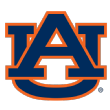
Third-year coach Johnnie Harris has the Tigers (22-11) headed in the right direction as they head into their first NCAA tournament since 2019. The 2023-24 campaign also marked Auburn's first 20-win season since 2018-19, and the third in the last 15 years. Along the way, the Tigers clinched their first SEC tournament win since 2020 by beating Arkansas in the second round. In a strong stretch to close the regular season, they took down bubble teams Texas A&M and Mississippi State, part of their first four-game SEC win streak since 2016.
Auburn put itself on the map in mid-January when the Tigers toppled LSU, handing the defending champ its first SEC loss of the season. Both regular-season matchups between the squads (LSU narrowly beat Auburn in a rematch in February) displayed how challenging Auburn is to face on the defensive end.
Graduate student guard Honesty Scott-Grayson, a first-team all-SEC pick, has shined this season as the league's third-best scorer (17.4 PPG).

The Phoenix (27-6) have historically dominated the Horizon League, claiming 16 titles dating to 1998. But they went without a championship the previous five years -- albeit earning spots in the WNIT -- until now. Green Bay is headed back to the Big Dance for the first time since 2018 after beating last year's Horizon champion, Cleveland State, in the final.
The Phoenix first made waves in November when they took down a pair of ranked opponents in Creighton and Washington State and also played Maryland close before falling by nine. Their offense is an efficient, well-oiled machine, sporting the best assist-to-turnover ratio in the country (1.75). Junior guard Natalie McNeal, the Horizon League tournament MVP, paces the Phoenix in scoring at 13.7 points per game, but it's their balance that sticks out, as six others score at least six points per game.

One of the steadiest mid-major programs in women's basketball, Middle Tennessee (29-4) makes its 21st NCAA tournament appearance (third in the past four years) and 12th under coach Rick Insell. With a 67-51 win over Liberty in the championship game, the Blue Raiders secured their 19th consecutive victory, becoming the second team in CUSA history to go undefeated through the regular season and conference tournament.
Middle Tennessee last lost on Dec. 30 to Grand Canyon, before that playing Princeton and Michigan tight (both losses) and snagging a signature win against Tennessee (which was missing Jackson). All five of the team's starters earned spots on all-CUSA teams, headlined by player of the year and tournament MVP Savannah Wheeler (17.4 PPG, 5.0 APG).
A huge milestone for the Blue Raiders would be to win a NCAA tournament game; they are 5-20 all-time in the event, the worst record among teams with 20-plus NCAA tournament games, and last advanced to the second round in 2007.

The Aggies (19-12) are back in the Big Dance for the first time since 2021, also marking the first berth for second-year coach Joni Taylor. Texas A&M breezed through nonconference play for the most part, but SEC competition was much tougher. It hasn't helped that graduate student guard Endyia Rogers and sophomore forward Janiah Barker missed time with injuries, playing in only 23 games together. The Aggies are 17-6 in those games and 2-6 without either.
Rogers had been sidelined for nearly a month, a stretch in which the team went 1-5, before returning for the SEC tournament, where the Aggies won their second-round matchup over Mississippi State. Though they fell to South Carolina the next game, senior guard Aicha Coulibaly scored 32 points (an Aggie SEC tournament record) and they gave the Gamecocks a tough time by forcing a season-high 24 turnovers. If Taylor's defensive- and rebounding-minded squad can build off that outing for the rest of March, the team should be in good shape.
NO. 12 SEEDS

After falling to Princeton in the Ivy League tournament final at home, the Lions' NCAA tournament hopes seemed bleak, but after the best three-year stretch in program history, Columbia was rewarded with its first bid. The common denominators for these three seasons have been coach Megan Griffith, a former Lions point guard, and Abbey Hsu, the best player Columbia has ever had. The senior led the Ivy League in scoring each of the past two seasons, hitting a career-high 20.6 points per game this season. One of the best pure shooters in the country, Hsu averaged 3.0 made 3-pointers per game this season. -- Charlie Creme

Missouri Valley Conference champion Drake went 19-1 in regular-season league play but got a scare in the MVC tournament. It took overtime to beat Northern Iowa in the semifinals, and a last-second shot to defeat Missouri State in the final and win the tournament title. It's Drake's second MVC tournament championship in a row.
Junior guard Katie Dinnebier (17.9 PPG, 6.9 APG, 2.4 SPG) and forwards Grace Berg (17.0 PPG) and Anna Miller (13.6 PPG, 10.1 RPG) lead Drake (29-5). The Bulldogs pushed Louisville last season in the NCAA tournament, falling 83-81 in the first round. This year could bring the Bulldogs their first NCAA tournament victory since 2002. -- Michael Voepel

When it comes to consistency, few programs do it like Florida Gulf Coast (29-4), which won its seventh straight ASUN tournament title and is back dancing for the 10th time in program history. Consider: Only FGCU and UConn have won at least 25 games each of the last 14 seasons, and Karl Smesko is the third-winningest active D-I coach.
The Eagles were perfect against ASUN competition and are ranked No. 2 overall in CollegeInsider's Mid Major Top 25 poll, behind only AP-ranked Gonzaga. In nonconference play, they lost to USC, Iowa and Duke but earned a Top 25 win over North Carolina the week of Thanksgiving. Their style of play -- predicated on taking and making a lot of 3s -- often proves to be a tough matchup.
Redshirt junior guard Emani Jefferson -- who previously played at Memphis and Wright State -- has led the charge on both ends (16.1 PPG, 2.0 SPG) on her way to being tabbed ASUN's player of the year, defensive player of the year and co-newcomer of the year.
The past two seasons, FGCU made it to the second round of the NCAA tournament with wins over Virginia Tech and Washington State, but it's still seeking its first Sweet 16 berth.

South Dakota State Jackrabbits
The Jackrabbits (27-5) extended their run of preeminence over the Summit League, going undefeated in conference competition on their way to winning their second straight tournament crown and fourth in the past seven years. Overall, South Dakota has won 11 Summit League tournament championships since 2009 and will make its 12th appearance in the Division I tournament. Of its five losses out of conference, four came against ranked teams.
The Jackrabbits' strength is on the offensive end, where they have three players averaging double figures, led by Summit League player of the year Brooklyn Meyer, who gets it done down low. But they also have four other players shooting around 40% or better from 3; as a team they're hitting 38.3% of their treys.
Last season the Jackrabbits upset USC in overtime to advance to the second round; they last moved on to the second weekend in 2019.

Third-year coach Shea Ralph seems to have found her stride, as 2023-24 wasn't just Vanderbilt's best season since she arrived in Nashville, but the program's best in more than a decade. The Commodores (22-9) started 16-1 with a tight loss to NC State. Their 22 wins are 10 more than last year and the most the program has recorded since 2011-12, while their nine SEC victories are their most since 2012-13. Vanderbilt set a program record with six SEC road victories, winning at Texas A&M, Mississippi State and Arkansas. Making the NCAA tournament for the first time since 2014 is the perfect reward.
Graduate student guard Jordyn Cambridge, a Naismith defensive player of the year semifinalist, is third in the nation in steals (3.6 per game) and spearheads the defense, while junior guard Iyana Moore (13.9 PPG) has had an all-SEC-caliber season after missing last year due to injury.
NO. 13 SEEDS
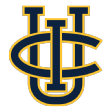
Things at UC Irvine had been steadily improving for years under coach Tamara Inoue, including three consecutive 20-plus-win seasons for the first time in program history and its first Big West regular-season title last year. The one thing missing was a tournament championship and berth to the NCAA tournament (they got close, finishing as runners-up two of the previous three years and appearing in the WNIT twice.)
But the Anteaters (23-8) have now checked that major goal off the list. No. 2 seed dismantled fifth-seeded UC Davis in the Big West final to clinch its first appearance in the NCAA tournament since 1995. Junior guard Déja Lee, the program's first Big West Player of the Year for her impact on both ends of the floor, was fittingly named tournament MVP, and the Anteaters enter March Madness on a season-best six-game win streak, with all victories by double figures. They will also look to capture the Big West's first NCAA tournament win since 2004.

After winning each of their 20 regular-season MAAC games by an average of 18.3 points, the Stags (31-1) needed every last point to survive Niagara in overtime in the conference tournament final. The victory maintained the second-longest winning streak in the country (29) behind South Carolina. Fairfield's only loss of the season came in the third game against Vanderbilt. Senior Janelle Brown won MAAC player of the year honors, but two of the Stags' top three scorers are freshmen: Meghan Andersen and Kaety L'Amoreaux.
While Saturday was a struggle, Fairfield is one of the most efficient offensive teams in the country, finishing third in 2-point field goal percentage. -- Charlie Creme

It's been a minute, but the Thundering Herd (26-6) are back in the NCAA tournament for the first time since 1997 and just the second time overall. Coach Kim Caldwell was hired entering the 2023-24 campaign, when Marshall was picked to finish ninth in the Sun Belt. But Caldwell has seen resounding success in Year 1: The Thundering Herd clinched both the Sun Belt regular-season and tournament titles, their 26 wins the most in program history.
The tournament final, which went into overtime, produced one of the craziest box scores you will ever see: Marshall forced 39 James Madison turnovers but made just 30 of 99 shots (and 8 of 46 3s). James Madison, meanwhile, attempted only 53 shots. The game encapsulated Marshall's unique playing style: The Herd play at the fastest pace in the nation, take a lot of 3s (31.7 per game, also the most in the country) and pressure on defense (averaging 13.4 steals per game).
Senior guard Abby Beeman, the Sun Belt player of the year and tournament Most Outstanding Player, is the head of the snake, leading the Thundering Herd in scoring (16.8 PPG), rebounding (5.7 RPG) and assists (6.4 APG). She's also one of the nation's top assist leaders and has two triple-doubles on the season.

Portland Pilots
On Feb. 28, Gonzaga routed Portland 90-40 in Spokane to earn its 23rd straight win. Their meeting prior to that, the Zags won comfortably by 21. All bets were off when the calendar turned to March, though. In the WCC tournament semifinal, Portland erased a 16-point deficit against Santa Clara to come away with a two-point victory. Then the No. 3 seed Pilots upset the top-seeded Zags 67-66 to collect their second consecutive WCC tournament championship and third in five years, asserting themselves as a bid stealer.
Portland (21-12) operates with a balanced group that includes junior guard Emme Shearer, an all-WCC first-team selection, graduate student forward Kennedy Dickie, who won WCC tournament MVP, and senior forward Lucy Cochrane, whose 100 blocks are second most in the country behind Stanford's Brink (109).
NO. 14 SEEDS

Virginia Tech fans are well familiar with Chattanooga's Shawn Poppie, who took over the Mocs ahead of the 2022-23 campaign following six seasons on Kenny Brooks' staff. Poppie has since flourished at Chattanooga: Last year he was honored as the WBCA's Division I Rookie Coach of the Year as he guided the Mocs to their highest win total since 2017. This year he led the program to a 28-4 record (13-1 in the Southern Conference) and to back-to-back conference tournament titles and NCAA tournament appearances. Chattanooga's signature win came over Mississippi State in early December, and it joins South Carolina as the only teams not to lose a game on the road this season.

The Eagles (29-5) are celebrating the most successful season in program history after winning the Big Sky regular-season and tournament titles and earning their first NCAA tournament appearance since 1987. Jamie Loera (13.3 PPG, 5.9 RPG, 5.5 APG, 2.4 SPG) propels the Eagles' success. The Big Sky player of the year and two-time defensive player of the year gets help from veterans Aaliyah Alexander (14.8 PPG) and Jaleesa Lawrence (11.3 PPG), who are registering career-best scoring numbers. -- Charlie Creme

In six seasons at Jackson State, Tomekia Reed has won the SWAC coach of the year four times. She turned the Lady Tigers (25-4) into the dominant program in the SWAC, winning five straight regular-season titles with just two conference losses in four seasons. Now Jackson State is headed to its third NCAA tournament in four years.
The Tigers have size -- six players in the rotation are 6 feet or taller -- and experience -- the top six players have each played at least four years of college basketball. Program mainstays Miya Crump and Ti'lan Boler lead the way for a team that challenged itself with games against Kansas State, Oregon State, Mississippi State, Miami and Texas.

In their first season in the American and as the No. 9 seed in the AAC tournament, the Owls are in the NCAA tournament for the first time under third-year coach Lindsay Edmonds, who served for eight years as an assistant at NC State under Wes Moore. The Owls won four games in four days to win the AAC tournament after finishing the regular season on a five-game losing streak. Malia Fisher, a 6-2 junior, was Rice's scoring and rebounding leader during the season and averaged 14.5 points and 7.8 rebounds during the tournament run. -- Charlie Creme
NO. 15 SEEDS

The Lancers weren't eligible to play in the NCAA tournament three years ago when they won their first WAC championship, as the program transitioned to Division I. Now that the probationary period is over, and with Chloe Webb transferring from UC Irvine two years ago, the pieces were in place for another run. With Webb scoring 24 points and playing like the WAC player of the year, Cal Baptist came back to beat Stephen F. Austin on Saturday to earn the school's first trip to the NCAA tournament. Led by Webb's 21 points and 7.9 rebounds per game, the Lancers were ninth in the country in scoring and enter March Madness on a nine-game winning streak. -- Charlie Creme

Kent State (21-10) couldn't break through against the Mid-American's best teams during the regular season, going 0-4 against Toledo and Ball State. Then for three days in Cleveland at the conference tournament, the Golden Flashes were the league's best, winning their semifinal game over the Cardinals and the final against Buffalo by an average of 16.5 points.
Katie Shumate, a 5-11 senior, is Kent State's best player, but 5-4 sophomore Dionna Gray, who is averaging 4.7 points per game on 28.8% shooting from 3-point range, scored 14 points on 4-for-6 shooting from deep in the MAC title game. -- Charlie Creme

Maine graduate student Anne Simon won both America East player and defensive player of the year for the second time in three seasons -- marking the fourth consecutive year the Black Bears (24-9) have had the league's top player. Maine has also won five of the past seven regular-season America East titles. Yet this marks the Black Bears' first trip to the NCAA tournament since 2019. They did it with a dominant title game performance against Vermont, led by Simon's 15 points, seven rebounds, four assists and two steals. -- Charlie Creme

Already the top team in the MEAC with regular-season and tournament titles in 2022 and 2023, the Spartans (27-5) added former Rutgers and NC State point guard Diamond Johnson this season. They cruised through the conference season with just one loss, and all but three of their wins were by double figures. Johnson found a home once she was eligible to play in mid-December and led the MEAC during conference play in scoring (19.6 PPG), 3-point field goal percentage (44.0%) and steals (3.5 SPG). -- Charlie Creme
NO. 16 SEEDS

The Dragons (19-14) beat all the odds to become the final team Sunday to punch its ticket into the NCAA tournament with an auto bid. Drexel struggled to find its footing early in its first season without former star Keishana Washington, who was third in the country in scoring last year. On March 1, the Dragons fell to 12-14, and shortly after, when CAA year-end awards were announced, they were left off entirely.
Since then, Drexel hasn't lost. It won four games in four days as a 7-seed in the CAA tournament, the first three by a combined five points. The Dragons knocked off the top two seeds to secure their third NCAA tournament appearance and second in four years. According to ESPN Stats & Information, the Dragons are the only Division I team in the past 25 years to have three wins by two points or fewer in a single conference tournament. They are also the second straight (and overall) No. 7 seed to win the CAA tournament crown, following Monmouth from last year.
Junior guard Amaris Baker has upped her game in March, and though the team entered Sunday's final ranked 231st in 3-point percentage (29.4%), Baker and fellow guards Brooke Mullin and Erin Sweeney combined for 10-for-17 shooting from the arc to help their team make history.

Last year, the Crusaders snapped a 15-year streak without a NCAA tournament appearance. This season, they ensured there would be no such drought again. Fresh off Holy Cross' 13th regular-season title, the Crusaders are back in the tournament again after pulling out a close win over Boston University on Sunday. It's their 14th appearance in the Big Dance. Fourth-year coach Maureen Magarity has directed Holy Cross to three consecutive 20-win seasons for the first time in the 20 years.
Senior guard Bronagh Power-Cassidy leads the way for the Crusaders with 16.6 points per game while shooting 39.7% on 3s. The all-league first-team selection has been heating up the last few weeks with two 30-pieces over the last six contests.
Holy Cross has the Patriot League's sole NCAA tournament win; the Crusaders beat Maryland in 1991.
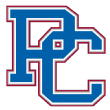
Welcome to the Big Dance, Presbyterian! The Blue Hose (20-14) began their championship run by knocking off top seed High Point in the semifinals of the Big South tournament, clinching their first finals appearance. From there, they beat Radford to punch their ticket to the NCAA tournament for the first time since transitioning to Division I in 2007. Thanks to their recent stretch (eight wins in nine games), their 20 victories this season mark the most in the program's history.
The Blue Hose's big three of sophomore guard and Big South tournament MVP Tilda Sjökvist, sixth-year center Bryanna Brady and junior guard Mara Neira all average between 11.3 and 12.4 points per game. Sjökvist and Brady were all-Big South second-team picks.

Sacred Heart would have earned the NEC's automatic bid regardless of how Sunday's final panned out, as title game opponent Le Moyne isn't eligible for the NCAA tournament amid its reclassification to Division I. But the Pioneers won the championship game handily to clinch both the conference regular-season and tournament crowns and enter the Big Dance on a 15-game winning streak.
The Pioneers have now earned five NCAA tournament appearances and, for the first time, back-to-back berths. Last season they beat Southern in the First Four, signifying the first NCAA tournament win for a NEC program, before falling to Stanford in the round of 64.
Sophomore guard Ny'Ceara Pryor -- the two-time NEC player of the year -- is one of just two Division I players -- joining Notre Dame's Hidalgo -- to post 600-plus points, 200-plus rebounds and 100-plus steals this season. Pryor averages 18.9 points, 7.1 rebounds, 4.5 assists and 3.2 steals on the year.

One of the most successful Ohio Valley Conference programs over the past decade, UT Martin will represent the league in the Big Dance. The Skyhawks were actually the runner-up in the conference tournament; Southern Indiana won the title, but because they are still in the process of reclassifying to Division I, the Screaming Eagles aren't eligible for the NCAA tournament (but will play in the WNIT).
Back in the NCAA tournament after four consecutive appearances from 2011 to '14, UT Martin (16-16) has benefited from having redshirt freshman guard Kenley McCarn (16.7 PPG) back for a full season, where she earned all-OVC first-team honors alongside teammate Anaya Brown (15.1 PPG), a sophomore forward. The Skyhawks have dealt with six season-ending injuries and have been forced to rely heavily on freshmen and sophomores, who account for an NCAA-high 98.8% of their scoring.

Texas A&M-Corpus Christi Islanders
After chasing Lamar all season and twice losing to the Cardinals, Texas A&M-Corpus Christi saved its best for last, finally prevailing in their third meeting in the conference tournament title game to earn its first trip to the NCAA tournament. This comes one year after winning the regular-season title but losing to Lamar in the tournament semifinals.
The Islanders are one of the least-accurate 3-point shooting teams in the country, ranking 331st, but they hold opponents to just 36% overall field goal shooting, which ranks 20th nationally. -- Charlie Creme
